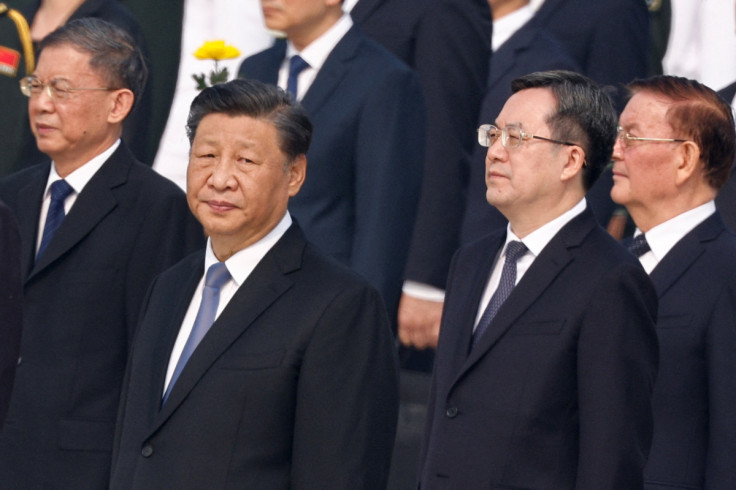Ding Xuexiang: From Shanghai Party Cadre To Xi Gatekeeper

When Xi Jinping left China for the first time in more than two years to visit Central Asia last month, his entourage included a familiar face from domestic trips.
Alongside China's top diplomats was Ding Xuexiang, who has risen from Communist Party cadre in Shanghai to become Xi's private secretary and gatekeeper.
Ding, 60, is considered a leading candidate for promotion this month to the Politburo Standing Committee, the party's seven-member ruling echelon, despite lacking experience as a provincial-level party secretary or governor.
His elevation would be seen as affirmation of the importance Xi places on trust and loyalty.
Xi is widely expected to secure a third leadership term at this month's party congress, which starts on Oct. 16, and the composition of his standing committee could be an indication of how much he has further consolidated power.
"What really stands out about Ding Xuexiang is that he has probably spent more time with Xi Jinping than any other official over the past five years," said Neil Thomas, a senior analyst for China and Northeast Asia at the Eurasia Group.
"Ding is effectively Xi's chief-of-staff and is almost always by his side. It is clear that Xi has trusted Ding's loyalty and ability," he said.
Born in the eastern province of Jiangsu, Ding studied mechanical engineering and began his career at the Shanghai Research Institute of Materials, where he rose during a 17-year-tenure from researcher to director and deputy party secretary.
He later moved through roles in the Shanghai party committee, where his political star rose after becoming top aide to Xi when the future leader moved to the Chinese commercial capital in 2007 and spent eight months as party secretary.
Other Xi acolytes from his Shanghai stint that were later promoted included Vice Premier Han Zheng and Xu Lin, who heads the National Radio and Television Administration.
In 2013, after Xi became president, Ding moved to Beijing as Xi's personal secretary as well as deputy director of the 200-member party Central Committee's powerful General Office, which manages the administrative affairs of the top leadership.
He eventually succeeded the General Office's then-head, Li Zhanshu, who is currently China's top legislator and at 72 is expected to retire from the Standing Committee.
While little has been written about Ding's time in Shanghai, an article he authored in 2008 for a magazine published by the General Office made clear the importance he places in administrative work, which he described as crucial to a country's success or failure.
"Ding's experience suggests that he is a talented administrator with political savvy and an appreciation for technocratic expertise. It is possible that Ding has influenced Xi to promote more technocrats to leadership positions at the ministerial and vice-ministerial level," Thomas said.
Given the opacity of Chinese politics and Ding's roll as a background player, there is even less known about him than other leading Standing Committee prospects.
"Ding is a political aide who operates behind the scenes, so there is not much public information about his personal impact, contributing to the wall of secrecy that surrounds Xi's top advisers," said Thomas.
In speeches this year Ding repeatedly urged party cadres to demonstrate loyalty and unity as well as rectify problems to ensure the smooth execution of the Party Congress.
© Copyright Thomson Reuters {{Year}}. All rights reserved.





















